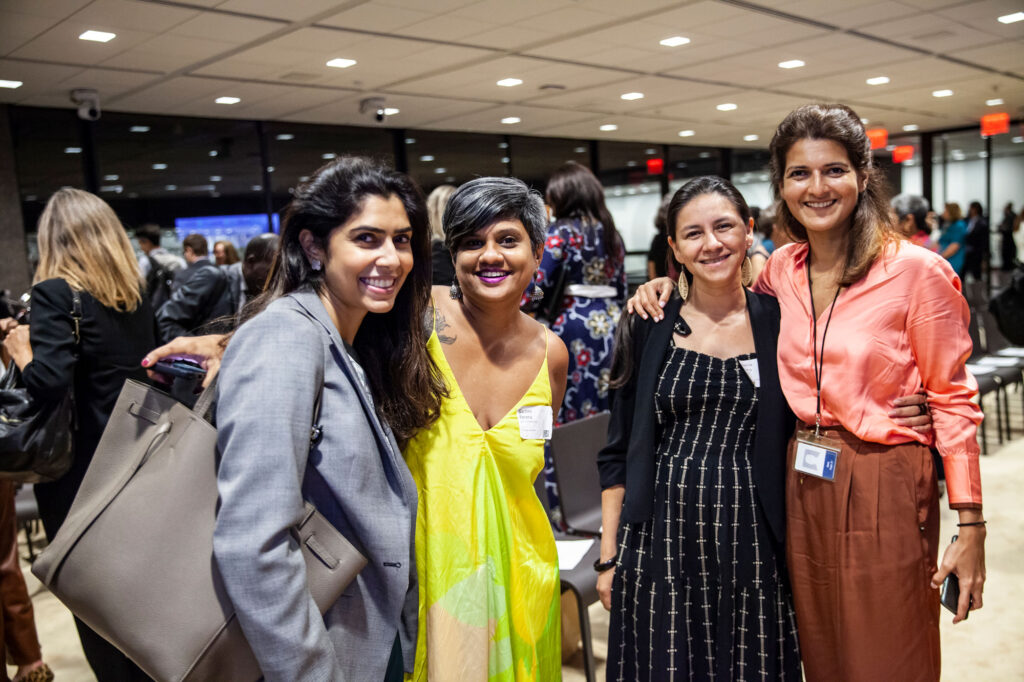Shared Principles & Commitments

The Alliance for Feminist Movements is a collaborative multi-stakeholder initiative dedicated to:
- As a multi-stakeholder alliance, all stakeholders bring important perspectives; our core purpose is focused on harnessing the expertise, resources, and networks of our members to increase support for autonomous feminist movements.
- The Alliance centers these movements because those directly affected by gender inequality and discrimination must take the lead in addressing them. They are the ones who need to define the priorities and in turn shape the funding agenda.
- The Alliance’s understanding of feminist movements in all their diversity is guided by Action Coalition 6 on Feminist Movements and Leadership. When we refer to feminist movements in ‘all their diversity’, we refer to the fact that feminist and women’s rights movements, organizations, and funds are diverse, and are led by diverse people everywhere, including, but not limited to, trans, intersex and nonbinary people, racialized people, indigenous women, women and persons with disabilities, women and persons living with and affected by HIV, young feminists, girls, sex workers and other historically marginalized persons.
- We approach this work open to experimentation, recognizing that we are in a learning project together that is working to change the way feminist movements are funded and supported.
- The Alliance for Feminist Movements is a space for sharing and building on what we know works to resource feminist movements as well as experimenting and innovating new strategies.
- We recognize that we will not always share the same perspectives and we strive to embrace differences of opinion. We come to this space in order to engage in productive dialogue with one another.
- We recognize that our governments, organizations, and movements all have histories of exclusion, exploitation, and discrimination that require repair, reconciliation, and actions to shift power to those that have been historically marginalized.
- We recognize that power comes in different forms and that we do not share power equally. As we engage in this space, we commit to speaking openly about power and dismantling or mitigating the power hierarchies present in the Alliance.
- We recognize that specific types of knowledge, speaking, and writing have been traditionally upheld and celebrated. This is a place where multiple forms of knowledge, and particularly lived experience, will be uplifted.
- We recognize that our feminist practices may look and sound different, but they are united in our fundamental support for the human rights of women and girls in all their diversity.
In order to build relationships based on trust, this is a place that actively seeks to break down barriers to participation, such as language, time zone, familiarity with global spaces, accessibility, among other considerations. - We aim to build space and work together in ways that promote inclusion, respect and learning from each others’ diverse realities.
- We will not tolerate actions within Alliance spaces that perpetuate systemic oppression through antagonism, silencing, intimidation, or coercion.
- As members of the Alliance, we uphold our Shared Principles and Commitments in all our actions within this space. We work in community and dialogue with one another to support each other to act in accordance with the Shared Principles and Commitments.
- All members of the Alliance work to ensure that the Alliance benefits feminist movements rather than our institutions exclusively.
- We will strive for transparency, responsible use of resources, and integrity in the operations of the Alliance and build systems and processes which hold the Alliance accountable to these values.
- We know that we are engaged in long-term transformative work in which change takes time and that joy and celebration are important ingredients for building long-term relationships. We will actively and publicly celebrate our successes as individual actors, as well as our collective efforts as members of the Alliance, and will build joy into our work.
- We recognize that for many members of the Alliance, withstanding and surviving the challenges of the current context is in itself a major success. We will always look for ways to honor and uplift that work as central to the mission of the Alliance.
These Shared Principles and Commitments reflect the intentions of the Alliance. They do not create rights or give rise to any obligations under national or international law.
Members are expected to act in a manner that is ethical, responsible and consistent with these Shared Principles and Commitments. We strive to cultivate an environment where members can mutually support each other to fulfill the commitments. When mutual support is not sufficient, members can contact the Secretariat (info@allianceforfeministmovements.org) to report concerns. The Secretariat will seek to understand the concerns being raised and explore options for resolution. The response may include:
- An intervention and reminder of the Shared Principles & Commitments to all Alliance members
- Escalating the concern to the Alliance Steering Group, which will in turn delegate a steering group member(s) to directly address the concerns with the member in question.
- Suspending membership temporarily, pending review and resolution
- Revoking membership if the concerns are not adequately addressed.
Each case will be evaluated individually, taking into account the nature of the concern. Any member removals will be reviewed by the Alliance Steering Group. In the event that there is a concern about a Steering Group member, that member will not be included in the deliberations. In cases where concerns or complaints relate to Alliance Secretariat staff, members can contact the Alliance Steering Group Co-Chairs (Co-chairs@allianceforfeministmovements.org).
